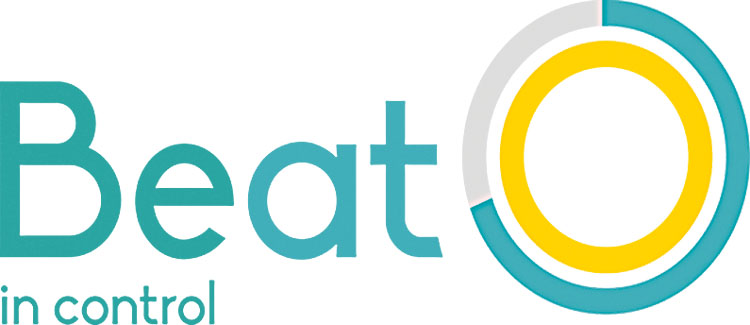World Health DayIncidence of low blood sugar reduced by up to 53.5 pc by digital health intervention

Kolkata, Apr 6 (FN Representative) A recent study by smart diabetes management platform BeatO found that using digital health tools and counselling to support the management of diabetes can help reduce the incidence of low blood sugar levels by up to 53.5%. The retrospective study presented at the Asian ACPCON 2021 by BeatO showed a significant impact on the reduction of hypoglycemia incidence. Up to 81% of the 7,514 diabetes patients included in the study did not have even a single episode of low blood sugar levels in a sustained period of 11 months. New digital health technologies are changing the way patients can track their condition, consult doctors and other caregivers. The Digital Health Market size was estimated at over USD 106 billion in 2019 and the industry is expected to grow at 28.5% CAGR through 2026. The onset of the Covid-19 pandemic also contributed to an increase in the adoption of digital health technologies across the world.
The study evaluated the medical records of 7,514 diabetes patients across India for 11 months to assess the program’s impact on hypoglycemia incidence and the associated factors. The patients were chosen on the criterion of having availed at least one counselling session with a certified diabetes educator on the platform. Post counselling, the hypoglycemia incidence was significantly (p< 0.001) reduced by 53.5%, 47.4%, 39.3% and 39.2% in fasting, postprandial, preprandial and random readings respectively. As a result, not even a single episode of hypoglycemia was observed post counselling across 81% of the patient population. It was found that 80% of patients showing improvement in hypoglycemia incidence were mostly aged above 40 years, 91.5% of which had Type 2 Diabetes and were using metformin. In India, it is one of the largest real-world evidence based big data study to assess the impact of digital diabetes care program on hypoglycemia incidence.
BeatO provides a connected diabetes care program via smartphone-connected glucometer, mobile app, real-time glucose monitoring, contextualized feedback and counselling ecosystem. The study showcases that using BeatO’s digital model which consists of BeatO’s smartphone-connected glucometer for SMBG and real-time counselling sessions by BeatO’s certified diabetes educators can support patients in managing their blood sugar levels and reducing the occurrence of hypoglycemia. Such digital tools when used in concurrence with doctor consults and other active interventions such as regular medication can help provide awareness, education and support to patients – helping them prevent or reduce complications of low sugar. The real-time insights expedite the process of getting timely care.
Commenting on the study, Gautam Chopra, Co-Founder & CEO, BeatO said “This study was aimed at understanding the supporting impact of BeatO’s connected diabetes care program on hypoglycemia incidence and factors associated with hypoglycemia incidence in India. It has contributed to our understanding of how a connected ecosystem which includes real-time glucose monitoring, feedback and counselling can reinforce engagement and in turn help reduce the occurrence of hypoglycemia.” Furthermore, the study shows that elderly patients above the age of 60, along with patients on insulin require more direct and intensified intervention to improve their hypoglycemia episodes.
CMRI & BMB pledges to build a fairer, healthier world
Kolkata, Apr 6 (Agency) Annual events aim to raise awareness towards both physical and mental health issues with a particular theme. Like every year, this year April 7 brings up the importance of global health to the mass by celebrating World Heath Day. The theme for 2021 is “Building a fairer, healthier world”. Due to the Covid-19 pandemic, the world has catered to the citizens differently. While some people struggled to get the basic healthcare amenities, others had the facility to get the best healthcare facilities. The unprivileged community was affected the most by this pandemic. Hence, this year WHO has particularly urged every country to ensure quality healthcare equality to every citizen and bridge this gap.
Everyone must have a healthy living and working conditions. During lockdown, CK Birla Hospitals – CMRI & BM Birla Heart Research Centre has set a benchmark by organizing a week-long blood donation camp as an attempt to secure the future of the society. The fear to visit hospitals and to maintain social distance caused insufficient stocks of blood in the blood banks. Important operations like cardiac surgeries, cancer treatment,emergency surgeries, and hereditary disorders like Thalassemia, Hemophilia and other ailmentsrequire a sufficient stock of blood. This camp ensured all the protective measures before receiving blood from any donor. The hospitals have succeeded in saving number of lives while conducting crucial cardiac surgeries amidst pandemic. During the peak lockdown period, BMB did a crucial cardiac switch surgery of a two-week old infant, complex valve replacement and open-heart surgery of an elderly patient including an implant in a Haemophilia patient. On the other hand, the Multi-specialty hospital, CMRI launches Robotic Ortho Surgery for the first time in Eastern India as a solution to high risk complicated replacement procedure with the help of latest technology.
It leads to the longevity of the joint implant by ensuring perfect alignment and eliminating human mistakes. Both the young and elderly people can recover from this surgery soon.The first Robotics joint replacement surgery in Kolkata was successful. According to COO of CK Birla Hospitals, Dr. Simmardeep Gill, “CMRI, BM Birla Heart Research Center in Kolkata and RBH in Jaipur have taken a pivotal role during the peak of pandemic to provide the best quality healthcare to the citizens. We became the first hospital in East India to introduce Robotic Orthopedic surgeries.”

